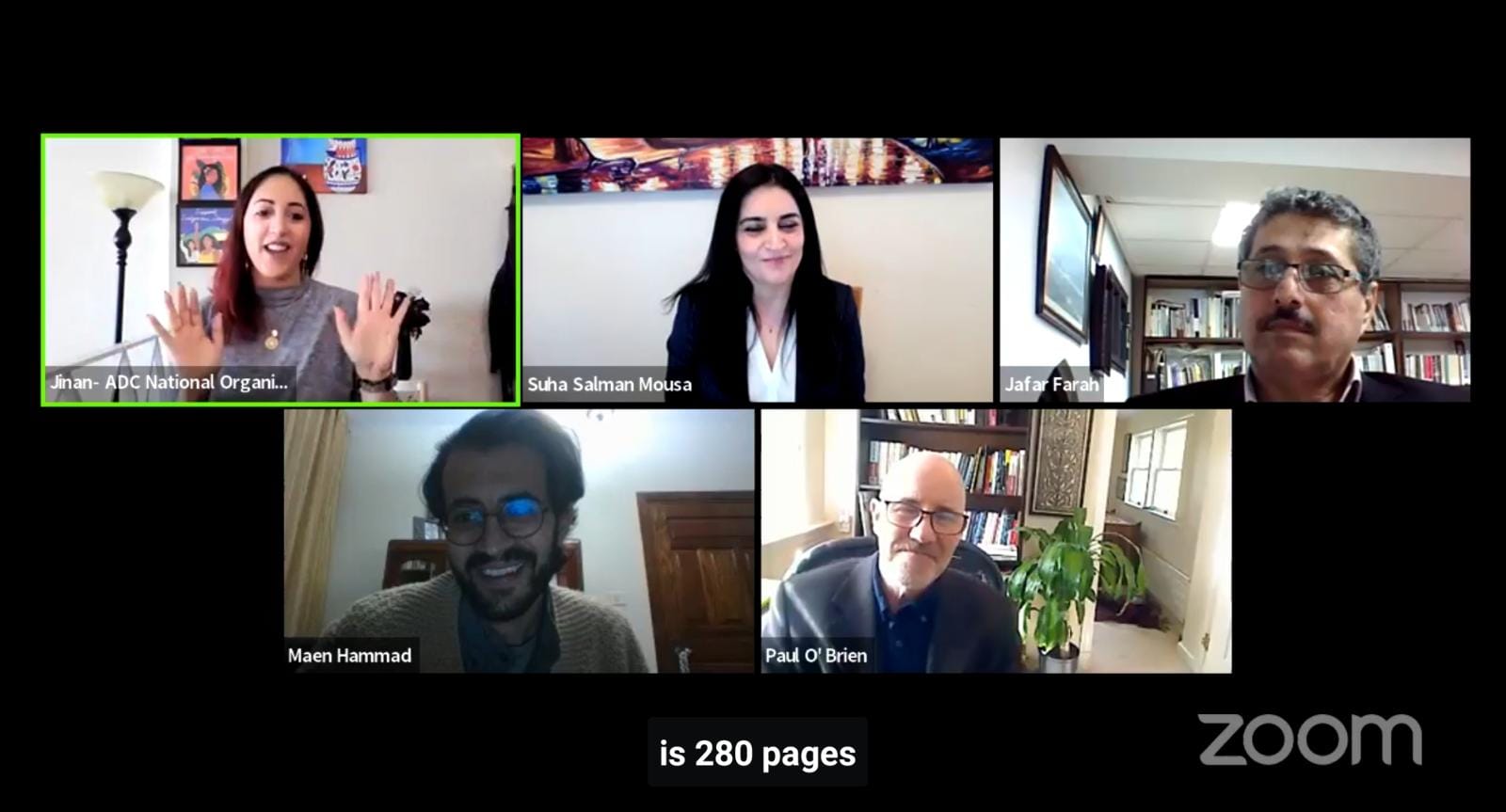
Feb. 17, the Mossawa Center and the American-Arab Anti-Discrimination Committee (ADC) conducted a joint webinar discussing Amnesty International’s recent report on Israel. The webinar was joined by Paul O’Brein, Executive Director of Amnesty International USA, Maen Hammad, Regional Campaigner of Amnesty International USA, Jafar Farah, General Director of the Mossawa Center, Suha Salman-Mousa, Executive Director of the Mossawa Center and moderated by Jinan Shbat national organizer of the ADC.
Paul O’Brein, Exec. Director of Amnesty, noted that 80 congressional offices have protested the report. However, Amnesty remains an “impartial, a-political movement of 10 million people. The report was met with Israeli fury, accusing Amnesty of antisemitism and incitement. The Israeli government directly responded to the report as well, calling it “false, biased and anti-Semitic.”
Maen Hammad stated, “Amnesty developed guidelines to the use of the term Apartheid. This has been a long internal process to discuss the research process before delving into the research itself. The research itself took 2 years, with over 15 different case studies, spanning 280 pages.” He added, “Apartheid is not just a social reference, it is a crime against humanity, and it’s a disgusting system that does not need to exist today.”
Suha Salman Mousa, Executive Director of the Mossawa Center, went on to highlight some of the chokeholds that Palestinian Arab citizens experience day-to-day. Jewish Israelis have one form of ID that give them the privilege to live and travel as they pleased, on the other hand Palestinians have 4 different types of IDs, with each group having its own unique struggles “Jewish Israelis obtain national ID naturally, which allows them to move and travel as they please. On the flipside, Palestinian Arabs could have 1of 4 types of ID’s, some of which would require them to submit pleas for permits that temporarily allow travel.”
She added that the recently repealed Citizenship law is another form of collective punishment that affects more than 45,000 families from reuniting with their loved ones. The undocumented spouses and children are deemed demographic and security threats to the state of Israel and are treated as such. Often, they are denied access to basic services such as health care and social security, which is especially harmful to these families as many of them already live below the poverty line.
The law forces the families to go through humiliating and arbitrary process to renew their legal status annually. They may be tasked with things such as showing all utility bills with both names of the couple, and if one bill is not up to par then the status can be revoked instantly and the spouse could face deportation. Adding insult to injury, some have to undertake DNA tests to prove paternity for their own children and obtain temporary status.
“These families are severely disenfranchised; undocumented partners struggle to find jobs, cannot obtain driver’s licenses to drive their children to school. It’s a very difficult burden to carry, especially when it affects your children’s lives’ as well. Next week, Wednesday at 9 am we will be outside the Knesset along with the affected families and other human rights organizations. We will advocate against this law once more in hope of preventing it from passing,” she added.
Finally, Jafar Farah, General Director of the Mossawa Center, thanked Amnesty for revealing the true nature of the situation on ground in Israel. He stated, “it’s important for Israelis to look in the mirror and reflect on their actions,” in light of the events of May last year, during which several settler organizations and gangs ignited clashes inside of the Green Line with the help of police in mixed cities. “In the last 20 years alone, we have lost 46 Palestinian Arab citizens to police violence, with the legal system only convicting 2 officers,” he said.
The Amnesty report referred to several case reports and articles published by the Mossawa Center on police violence, selective law enforcement, family unification and the Citizenship Law, and the state budget.
For more information about the full report please use the following link:
To watch the Webinar:









